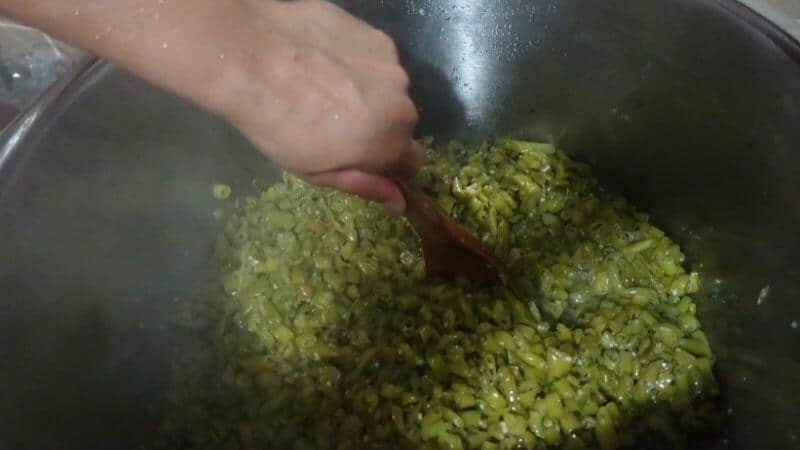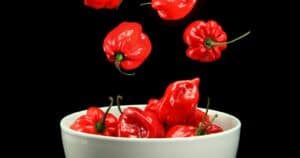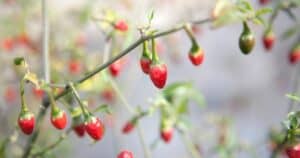Do you love spicy food that makes your mouth tingle? Have you ever wondered if cooking peppers makes them even hotter? This article will explain everything you need to know about how cooking affects a pepper’s heat level.
Yes, Cooking Releases More Heat
Cooking peppers does make dishes spicier. When you cook peppers, their cell walls break down and let out more capsaicin. This chemical gives peppers their spicy kick. As capsaicin spreads through your food, it makes the whole meal taste hotter.
Frying peppers can be especially intense. The capsaicin gets airborne and can make you cough or get teary eyes. It’s best to add dry peppers at the end of cooking. That way, you won’t accidentally pepper spray yourself!
Heat Doesn’t Destroy Capsaicin
What gives peppers their trademark
Capsaicin’s boiling point is very high, around 410°F. Unless you are grilling peppers over an open flame, your stove won’t get hot enough to boil away the capsaicin.
However, long cooking times can change a pepper’s taste and texture. The spiciness might mellow out as other flavors develop.
Spicy Sensations Beyond Your Tongue
The spicy sensation of peppers doesn’t just affect your taste buds. Capsaicin can also activate receptors in your nose and lungs.
That’s why breathing in pepper vapors while cooking makes you cough and rub your eyes. The capsaicin irritates these sensitive mucous membranes.
When eating fresh peppers, their high water content prevents this reaction. But with dried spices, it’s easy to accidentally inhale their potent heat.
Taming the Flames in Your Mouth
If your mouth feels scorched after eating fiery food, try sipping cold dairy products. Ingredients like milk, cream, or ice cream provide cooling relief in two ways:
- Casein protein – This dairy compound binds to capsaicin and washes it away. Casein acts like soap dissolving grease.
- Cold temperature – Icy temperatures numb your mouth, masking the burning feeling. It’s like putting ice on a minor kitchen burn.
Adding creamy dairy to spicy dishes can also turn down the heat. Stir in some yogurt or sour cream to cool down an overly hot curry.
Some Cooking Methods Reduce The Heat
While cooking often increases the perception of heat, some cooking techniques can actually dial down a pepper’s
- Soaking – Letting peppers sit in water for 30-60 minutes before cooking can help pull out some of the capsaicin. This is a easy way to tame freshly sliced jalapenos or habaneros.
- Boiling – Dropping peppers into boiling water for 3-5 minutes will partially deactivate the capsaicin. This can reduce the burn while still keeping some moderate
spice . - Baking/Roasting – Dry heat from an oven or grill can break down some of the capsaicin over time. Roasting bell peppers for 30-45 minutes will give them a sweeter, milder flavor.
- Deseeding – Removing the white inner ribs and seeds from a pepper reduces the highest concentration of capsaicin. This cuts down the heat significantly.
Peppers Add More Than Just Heat
Spicy peppers provide many tastes beyond just searing
For example, you can:
- Roast and stuff peppers with cheese or meat
- Sauté rainbow bell peppers for fajitas or pasta
- Puree peppers into creamy soups and sauces
- Sprinkle dried pepper flakes on pizzas or salads
Peppers even influence texture. Both fresh and dried peppers have pectin, a gummy fiber that thickens liquids when blended. This gives Mexican mole sauce its signature velvety consistency.
A Touch of Sweetness Reduces the Burn
Does adding sugar make peppers less spicy? Not exactly. But a bit of sweetness can help temper the heat.
Try adding just 1 tablespoon of sugar or honey to your dish. The sugar aids in absorbing the oily capsaicin, making it easier to digest. But be careful not to make the meal too sweet.
You can also stretch out the heat by increasing other ingredients like meat, broth, or veggies. Their flavors will help counterbalance the
Frequently Asked Questions
Do peppers get hotter as they mature?
Yes, most spicy peppers become their hottest at full maturity when they turn red. Waiting until this ripe stage will give you the most intense pepper flavor.
Is capsaicin good for your health?
Research shows capsaicin has anti-inflammatory effects that benefit heart health. In one study, it improved heart disease risk factors in people with low HDL cholesterol.
Can too many hot peppers hurt you?
Eating large amounts of spicy peppers may cause stomach pain, nausea, vomiting, and diarrhea. You’ll also feel more intense burning pain in your mouth and throat.
The Bottom Line
Cooking peppers releases more heat, but extended cooking times can actually make dishes milder. With the tips in this article, you can better control the





